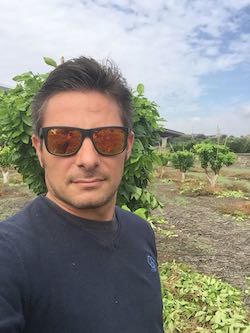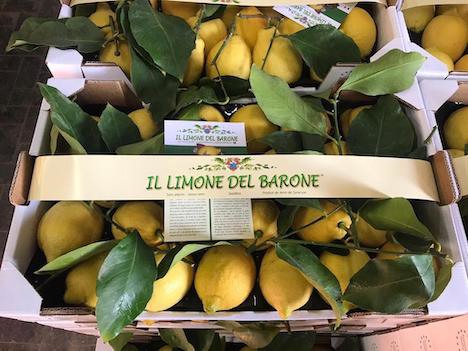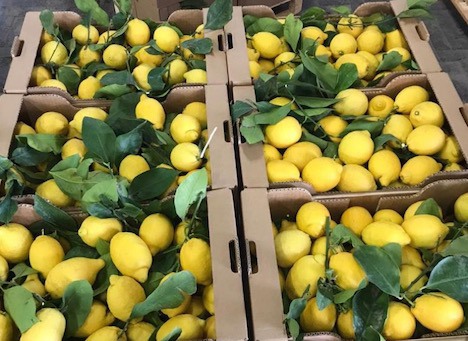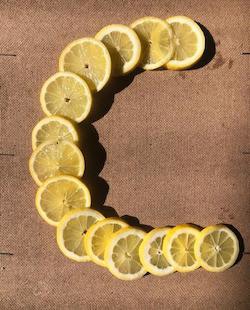 "In such a delicate moment for the history of our planet, our sector cannot stop. The agri-food industry must maintain supplies constant while trying to comply with provisions in force. What is more, the entire food production sector cannot make mistakes nor risk stopping," explain Andrea and Giovanni Pezzino di Geronimo, owners of Il Limone del Barone.
"In such a delicate moment for the history of our planet, our sector cannot stop. The agri-food industry must maintain supplies constant while trying to comply with provisions in force. What is more, the entire food production sector cannot make mistakes nor risk stopping," explain Andrea and Giovanni Pezzino di Geronimo, owners of Il Limone del Barone.
"In such an uncertain time, the words of my father come to mind. When I was feeling weak or ill, he always used to ask: 'have you taken your vitamins?'"
Vitamin C, or ascorbic acid, is a so-called water-soluble vitamin, i.e. it cannot be accumulated in our organism and must regularly be taken through food. Ascorbic acid is known for being an antioxidant, i.e. a molecule that fights the action of free radicals.

It is a known fact that vitamin C is essential for our organism, just think about scurvy (the disease of sailors due to the lack of this specific vitamin) or the flu, which we have always fought with a balanced diet rich in fruit and vegetables.
The Recommended Daily Allowance (RDA) for vitamin C is 45 milligrams (0.045 grams) a day. Among citrus fruit, lemons are an important source of L-ascorbic acid (also known as vitamin C) and of potassium.
"A large number of scientific studies show that vitamin C plays a pivotal role in the development and maintenance of the immune system. Most of all, eating lemons, oranges and kiwis and taking supplements is strongly recommended to boost our immune defenses," stresses Giovanni.

"Nonetheless, I'm sorry to say that even in a terrible moment such as this one, there are fake news that conceal the beneficial properties of vitamin C. Who could actually be interested in the beneficial effects of vitamin C since it cannot be patented and is cheap? Controversies on the weak evidence of its curative or preventive action against viral infections in general do not mean we should pretend there are no studies on vitamin C that prove its beneficial effects on our immune system."

"This is why I contacted the chemical analysis laboratory directed by Bruno Attilio Catara. The results are surprising, as they confirm our conviction that our lemons contain above-average asorbic acid concentrations. (See lab test results).
 "The analyses performed on our lemons showed an ascorbic acid content of 57 mg per 100 gr of juice. This means that 100 g of juice are enough to meet our daily requirement of vitamin C."
"The analyses performed on our lemons showed an ascorbic acid content of 57 mg per 100 gr of juice. This means that 100 g of juice are enough to meet our daily requirement of vitamin C."
"This result proved us right and so we started our initiative involving clients, relatives, friends, collaborators, police stations, the logistics sector and anyone near us. Over the past few weeks, happy with our result, we gifted hundreds of 1 kg nets. We like to think nature provides us with everything we need. It gave us lemons, so let us make lemonade."
Contacts:
Azienda Agricola Sperone
Il Limone del Barone
Contrada Sperone
96013 Carlentini (SR) - Italy
Cell.: (+39) 349 3553990
Email:info@illimonedelbarone.it
Website: www.illimonedelbarone.it
